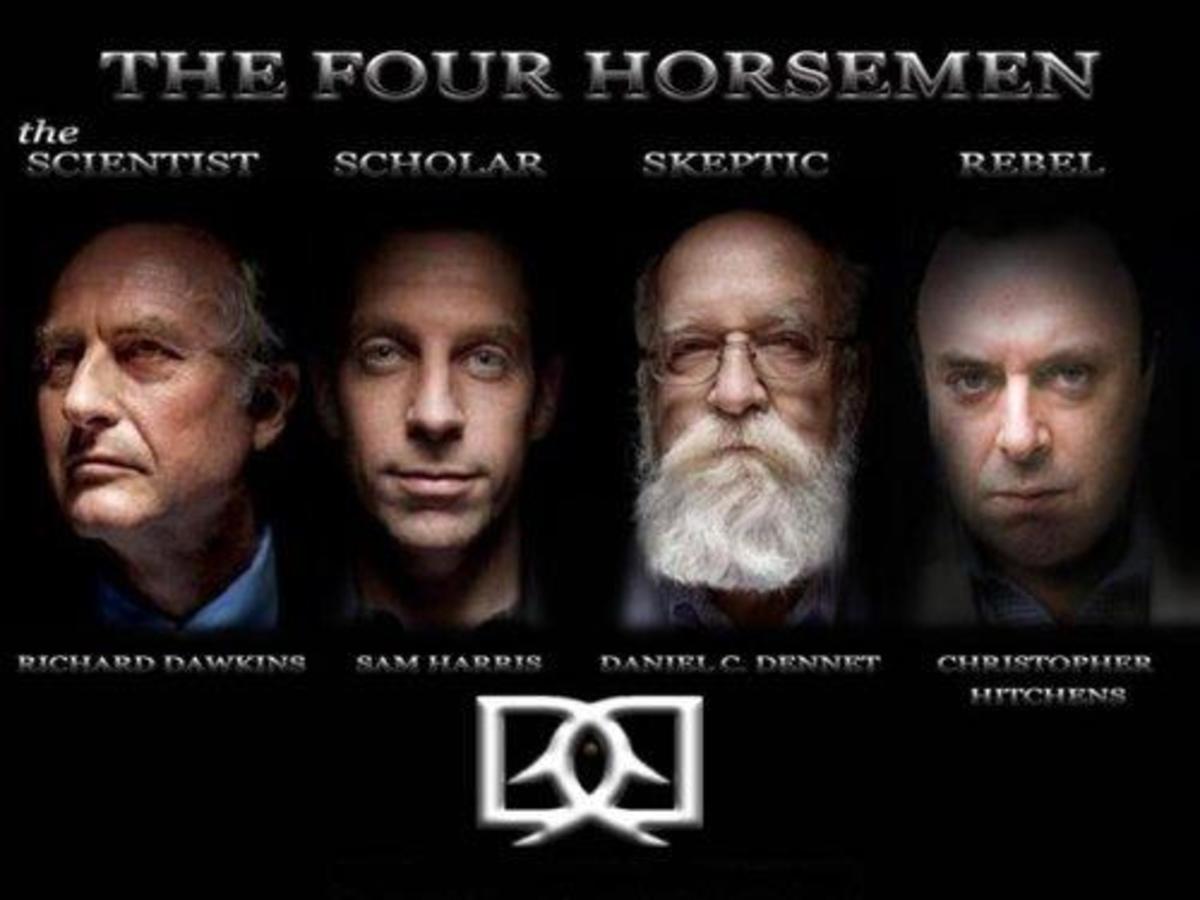Epicurus: Gods and Death - To Be or Not To Be?

The renowned philosopher of ancient Greece, Epicurus, in his Letter to Menoeceus, says that "death is nothing to us, and to know this makes a mortal life happy". The first half of this statement is clarified by Epicurus' Principal Doctrine II: "Death is nothing to us, because a body that has been dispersed into elements experiences no sensations, and the absence of sensation is nothing to us." Lucretius, a Roman philosopher of Epicurean persuasion, further explains, "One who no longer is cannot suffer" (De Rerum Natura III.867). I won't directly argue with the Epicurean belief that death is eternal nonexistence, except to say that no human has ever known with certainty what death entails. My argument is mainly against the wording of the the second clause, which makes it seem that a firmly held belief that death is nothingness universally and necessarily makes a life happy. If one's life is weighed down with fears of future punishments after death, or with a sense that life itself is an imprisonment to arbitrary divine laws, a new-found belief in annihilation could certainly make life happier. But for the rest of us, it wouldn't seem that the idea of nonexistence would make for a life with any additional happiness.
Epicurus and Lucretius went to considerable length in their attempts to rid their hearers of fearsome superstitions concerning the gods, with the admirable hope of releasing them from the existential anxiety necessarily born of such superstitions. Once a person comes to realize that their death will bring about a complete end
of consciousness, there is no reason to fear that punishment from the gods may await them beyond the grave. Once convinced that the gods can not punish the dead, however, one might naturally revert to to common fear that the gods punish the living. Epicurus has a ready counter to that fear as well. Speaking of the gods, he states, "A blessed and imperishable being neither has trouble itself nor does it cause trouble for anyone else. . ." (Principal Doctrine I). By portraying the gods as serene beings who do not involve themselves with human affairs, Epicureanism freed its believers from the
fear that their lives and fortunes are at the mercy of selfish and arbitrary deities.
Epicurus' value system considers pleasure to be "the greatest good" (Letter to Menoeceus, 133). Pleasure, in the sense that Epicurus meant it, referred simply to an absence of physical
and mental suffering (Letter to Menoeceus, 128). Fear, being one of the
most terrible forms of mental suffering, should have no place in one's life. In this light, the belief that death is nothingness is easily mistaken for an essential link to the good life, as it eradicates the superstitious terror of punishment after death. But this belief is not a
universal prescription for happiness. For example, there may be numerous people who don't believe that death is nothingness, but nonetheless have no fear of gods or divine punishment. To find such people, one need only find someone with the Epicurean notion of the gods. Since such gods--far removed from human
concerns--cause no trouble for anyone, they must refrain from harming not only the living, but also the dead. Any person who believes in such gods as those of Epicurus will feel no fear that the gods will torment them after death, so this fear can be removed without believing death is nonexistence.
At this point someone might put forth a very reasonable argument on behalf of Epicurus, going something like this: "I
say with Epicurus that pleasure is the greatest good, and that pleasure
is nothing but the absence of pain. It follows that perfect happiness comes only by believing death to be nothing. If death is nothing--the absence of sensation--as we say, then it involves absolute absence of pain, both in mind and in body. Thus, death is more complete a removal of all pain than we can even conceive of while still living. Since life offers nothing greater than freedom from pain, and death removes pain as
life never
could, death offers the greatest good to the highest degree possible. A
person who knows these things will be made supremely happy in life, by knowing that this perfect blessedness is impossible for any person to miss out on!"
In the face of such an argument, it seems good to look closely at the ideas Epicurus has about both pleasure and goodness.
His third principal doctrine states, "Pleasure reaches its maximum limit at the removal of all sources of pain." Again, he says that "when we no longer feel pain, we have all the pleasure we need" (Letter to Menoeceus, 128). Now, the dead no longer feel pain of any sort. The quintessential source of pain--consciousness--has been thoroughly removed. Therefore, only the dead experience pleasure in its highest state. This, of course, sounds absurd. If a person does not exist, they can not be said to experience anything, and we don't call anything that isn't experienced pleasurable.
Again, Epicurus calls pleasure "the greatest good" (Letter to Menoeceus, 133). In order for anything to be called good, it must be considered good in relation to something. A good car, for example, is not good by some quality of goodness in itself, but is considered good only in its usefulness to people. Water, itself neither good nor bad, is bad for the lungs, but good for trees. The absence of pain is good for sentient creatures. If nothing had ever existed, the idea of good would be impossible, because good must be good with respect to something. And so, in relation to people who exist, a greatest good might truly exist. No good can exist, however, in relation
to dead people, if one who dies "no longer is" (Lucretius, De Rerum Natura III.867). For if the dead are nothing, nothing can be good in relation to them, as every good must be good in relation to something.
Next, Epicurus
says that this greatest good is "easily supplied to absolute fullness, while pain, the greatest evil, lasts only a moment when intense and is easily tolerated when prolonged" (Letter to Menoeceus, 133). So human life can become such that its pain is scarcely perceptible within the abundance of this good. Epicurus doesn't even think it impossible for one to "live like a god among men" (Letter to Menoeceus, Conclusion). For Lucretius, the Epicurean idea of what it means to live like a god is
as follows: "For it is essential to the very nature of deity that it should enjoy immortal existence in utter tranquility . . . free from all
pain and peril" (Lucretius, De Rerum Natura II.645-648). If we take Epicurus literally when he speaks of humans living like gods, it follows
that certain people may live utterly free of pain and suffering, and do
so forever. If Epicurus isn't one to be taken literally, we should at least suppose that he felt philosophically
justified in saying that a human life can become like a god's life. He must have thought it possible for the good in a human life to so outweigh the bad that we may consider the bad to be completely negated, otherwise he would allow that the lives of deities have pains, thus contradicting himself.
If human life truly has the capacity to ascend to heights at which it is not blasphemous (or just nonsensical) to liken it to divine life, and divine life enjoys the utter fullness of
the greatest good for humans, then humans should strive to be like the gods. This would be striving to obtain in full what is good with respect
to people, which is freedom from pain. In John Godwin's introduction to the Penguin Classics 1994 publication of Lucretius' On the Nature of the Universe, the gods are said to be "paradigms of a happiness that we ourselves could obtain, the role
models of that Epicurean serenity which is the goal of . . . the philosophical system" (pp xvi-xvii). One passage that Godwin cites to support this claim states that "[if you don't reject notions] unworthy of the gods and foreign to their tranquility, then the holy beings whom you thus diminish will often do you real harm" (Lucretius, De Rerum Natura VI.69-71). Lucretius goes on to explain that this harm is not caused--as
is expected by the holder of false, fearful conceptions of gods--by angry deities exacting revenge. The harm results from such a one's own fearfulness, which prevents them from receiving the true "images" of the
gods. A bad life is likely to be the result. (De Rerum Natura VI.71-80). So the gods actually do affect us a great deal, but passively. The effect they have on us is due to our conception of them. If we contemplate them as they are, we may be blessed by becoming more like them in their serene and untroubled natures.
By considering
the writings of Epicurus and Lucretius, the following
three points are established. First, that the gods live utterly free of
pain, which is the fullness of mankind's greatest good. So the clearest
way for a human to reach the highest possible degree of human good is to live like the gods, if that is possible. Second, that the dead are nothing, as they do not exist at all. So without life, there is utterly no good with respect to humans. Third, that humans may obtain the good to the degree that they can be said to live like gods, which means that their fullness of good is so complete as to make considerations of any bad in their lives negligible. So with life, good is available humans in
utter fullness. Without life, no good is possible for people at all. So
life is useful and necessary for humans to obtain any and all good, which means that life is good in relation to our pursuit and acquisition
of good. And by extension, life is good in relation to humans.
There are two means by which all suffering may depart from a life: either by death or by becoming like a god. Of these, only becoming godlike provides the good, while death provides nothing. Epicurus tells Menoeceus that he has the ability, if he properly heeds Epicurus, to live like a god (Letter to Menoeceus, Conclusion). Saying this, he reveals his own conviction (perhaps subconscious), that to live like a god is desirable and worth the effort involved in reaching that condition. On the other hand, Epicurus reveals a belief that death is not desirable or good. He says, "One who is wise neither renounces life nor fears not living" and "it's desirable to live" (Letter to Menoeceus, 126). So he maintains that death is not to be feared, as it involves no suffering. But life being good, and death being nothing, one should never choose death over life, as that is a bad trade. But to live like a god is supremely good, as that is the final reward Epicurus promises the one who would diligently practice his teaching (Letter to Menoeceus, Conclusion).
With something perhaps like a Freudian slip, Epicurus has shown us what really lies behind all his rhetoric. He says that the faithful practice of his philosophy will enable one to live like a god. Gods live free of pain, but they also live without end. Although he didn't claim that his philosophy offers immortality, perhaps his promise here of a godlike life tells us that he wishes his philosophy provided immortality. Both by refusing to "renounce life", and by honoring the godlike life, he affirms his own feelings that nothingness offers nothing, whereas life offers good, and the highest good is found in conjunction with endless life. So death is a loss both of the good that is and the greater good that can be imagined. While we can refuse to fear or lament that fact, the fact in itself doesn't seem like the surest cause for happiness.
Poll: What do you believe about death?
- If you enjoyed my writing in this article, please take a moment to look at some of my short poems: click here.








